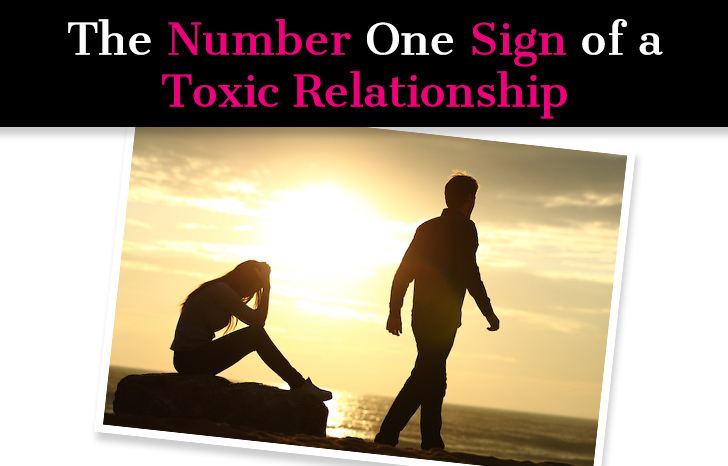The purpose of this article is to show you how you can quickly and easily see if you’re in a toxic relationship.
The term itself is interchangeable. I could just as easily refer to these relationships as unhealthy relationships or emotionally abusive relationships.
After years of talking to women from all over the world, I wanted to talk about this subject because I observed that these destructive and heartbreaking relationships all had one factor that ultimately made them turn toxic… even if the relationship started out well.
Take This Quiz And Find Out Right Now: Are You In A Toxic Relationship?
-
How do you define a toxic relationship?
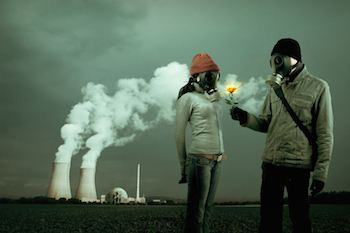
I define toxic relationships as a relationship dynamic where one or both people feel dramatically worse about themselves, their life, and their possibilities as a result of having this relationship in their life.
People in toxic relationships often describe it as feeling like the relationship “sucked their soul out” or “killed their self-esteem and/or well-being.” Ways to tell you’re in a toxic relationship often include:
- Feeling like you have to “walk on eggshells” around the other person
- Feeling like no matter what, you can’t please the other person
- Feeling like the other person frequently blames you for making them upset or unhappy
- Feeling like they have to swallow their own emotions and feelings in order to “keep the peace”
-
Why do some women stay in one? What are some of the most common reasons?
The tricky thing about toxic relationships is that they don’t start out toxic.
Toxic relationships are the result of a relationship dynamic that has a fatal flaw that both partners are unaware of: Both people believe that, in a relationship, one person can be responsible for the other person’s emotions.
That fatal flaw can show up in two well-meaning people who have no intention of hurting another person, but rather just have the perspective that society has pushed through movies, TV shows, and stories for decades: the idea that a relationship can make you happy.
They go in with the idea that the other person should (keyword: should) be doing things to make them happy and that their role is to make the other person happy.
What isn’t taught in our society is that happiness isn’t something you derive from a relationship, but rather happiness is something you and your partner are responsible for individually bringing into the relationship… and once two happy, emotionally responsible people come together, the happiness of each person spills over into the relationship, multiplies, and the relationship flourishes and deepens.
Emotional responsibility is simply the recognition that you are responsible for your own emotions and that nobody else ultimately can be. This applies to you, me, and everyone else on Earth. Only you have ultimate control over your emotions, same as your partner is only one with ultimate control of theirs.
When two people fail to recognize that nobody else can be ultimately responsible for their own individual emotions, that is the soil in which a toxic relationship dynamic can take root.
It’s easy to see how someone (and this could be a man or a woman) who refuses to take emotional responsibility for themselves could make life difficult for people around them. They blame others for their negative emotions and they use that blame as justification to attack their partner.
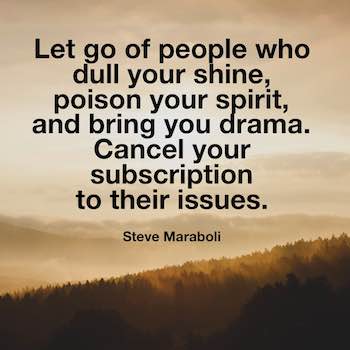
What’s more subtle in the dynamic is the flaw that causes empathetic people to fall into toxic relationships. When an empathetic person (who, again, could be male or female) doesn’t fully realize the absolute reality of full emotional responsibility, they believe they can change someone else’s emotions through their actions. Their intentions are good, but unfortunately, they don’t see that they’re attempting the impossible.
Toxic relationships really take hold when you have a person on one side who blames, attacks, and intimidates their partner (in an effort to coerce their partner into making them feel good) and a partner on the other side that fully believes (or even partially believes) that if they just try hard enough, they can make the other person happy. Toxic relationships require that both people don’t fully realize that ultimately, the individual is responsible for their emotions.
Inside the relationship, it can look like progress is being made. As the relationship starts out, the two people start spending time with each other and for the most part, they enjoy each other.
Then one of the early warning signs of a toxic relationship takes place and something shifts: one person gets upset and attacks or blames the other person for making them upset. Alternately, maybe that one person criticizes or puts down the other person for something.
The other person, with good intentions, tries their best not to upset the other person or let the other person down again. They try to “measure up” to the standard the other person has criticized them about.
This process plays out over and over again. The person on one side continues to criticize or attack the other person for something. That other person continues to try and appease and “measure up”… and all the while, their self-esteem, well-being, and happiness plummets since they’re metaphorically holding their breath, waiting for their partner to validate them and give them the love and affection they’re seeking.
The more this cycle plays out, the further the “appeaser” is led away from the shore and into the ocean… swimming feverishly, trying to stay afloat… and hoping that their partner will lift them aboard.
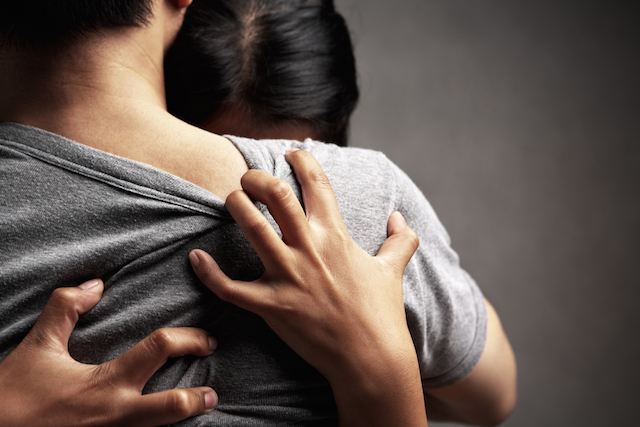
There are three major reasons someone stays in a toxic relationship:
- The appeaser has invested so much in the relationship that they want to get a return on everything they’ve invested. There are countless TV shows and movies that portray a relationship that was filled with turmoil magically leading to a happy ending. The appeaser believes that all of this drama, heartache and pain will someday lead to happiness in the end.
- One of the most addictive and dangerous qualities of a toxic relationship is what I call “the emotional roller coaster effect.” Humans evaluate the emotional impact of a relationship based on the emotional contrast that comes from their interactions with the other person.By emotional contrast, I mean that they enter the interaction feeling one way and come out of it feeling dramatically different.If you talk with someone and feel .05% happier than before you talked to them, that’s low emotional contrast to how you were feeling before and thus didn’t make a big emotional impact on you.But let’s say you’re feeling really upset and then you talk with someone and you come out of the interaction feeling amazing in every way: loved, inspired, hopeful, happy. That is high emotional contrast and you’ll attribute high emotional impact to that interaction.Here’s the problem: In a good, healthy relationship, you’ve got two happy people coming together.They’re both happy already and while their interaction might be loving, joyful and fun, the happiness they feel after the interaction probably isn’t going to be shockingly better than when they started the interaction.So there was no tremendous emotional contrast to how they normally feel and therefore no tremendous emotional impact perceived from that happy, healthy interaction.Now let’s look at a toxic relationship. You have a hopeful partner that believes that if they’re just good enough and appease the other person enough, then they’ll have the happy relationship they’ve always wanted.Their self-esteem is at an all-time low, they’re constantly worried about the relationship failing and they feel like their soul has been sucked out. Then they have a pleasant interaction with their partner where it looks like things might actually work out… and they’re ecstatic.Suddenly their mood (which was in the toilet) shoots into the stratosphere.They feel good, happy, hopeful, inspired… but most importantly, they feel a tremendous emotional contrast to their (now normal) negative mood. The emotional contrast is huge and therefore, the emotional impact feels huge and far more significant than any other relationship in their life.
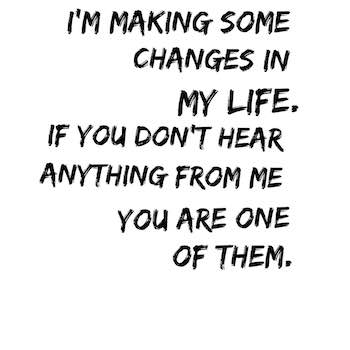
The problem is… the only reason that the emotional contrast (and thus, the emotional impact) feels so massive is because their mood is so low on average now.
They only feel this tremendous sense of emotional impact because the relationship, on the whole, takes them to such a low place most of the time.
This is precisely why people in toxic relationships often acknowledge that the relationship is making them very unhappy, but also that they love their partner more than they’ve ever loved anyone or anything before.
The emotional impact of the relationship is directly created by how terrible they feel most of the time and how intensely the good moments contrast with the bad.
The intense high is only possible when an intense low is their normal baseline state.
When these people compare the intense highs they felt in the toxic relationship to the positive feelings they experience in a happy relationship, they feel like the happy relationship must be lacking a quality of passion or connection that was present in the toxic relationship. Really, it’s just that they can’t see the illusion created by emotional contrast.
- Another major factor that can keep toxic relationships in place is something significant the partners share outside of the relationship. Maybe you have a kid together. Maybe you’re business partners. Maybe you share the same circle of friends. Whatever the reason, the outside factor beyond the relationship makes them feel like a clean break isn’t possible.
Are women more likely than men to get involved with a toxic person?
Well, let’s be clear here: there aren’t “toxic people”… there are simply people that can’t see the full reality of emotional responsibility: that all of us are ultimately responsible for our emotions, actions, and reactions… nobody else can be.
There are empathetic men and women out there and there are men and women out there who blame everyone (except themselves) for their emotions and for not living up to their standards.
Take those two types of people, both lacking a full awareness of emotional responsibility and you can pretty much guarantee a toxic relationship dynamic will take hold fairly rapidly.
I wouldn’t draw gender lines on it though. It’s more helpful to see the dynamic for what it is without labeling any one element as a male problem or female problem.
-
How long does a toxic relationship typically last? Is there a typical expiration date?
Toxic relationships last until a person can’t take it anymore… either because they saw the light or could no longer handle the darkness.
Toxic relationships can last decades if you have two people who can handle the suffering and simultaneously never gain conscious perspective on the dynamic or the reality of emotional responsibility.
It’s like a drug addiction – the people in it realize they’re not happy, but it only ends when someone either finally sees the insanity of it (and can’t participate anymore), or hits an ultimate breaking point from which they can’t return.
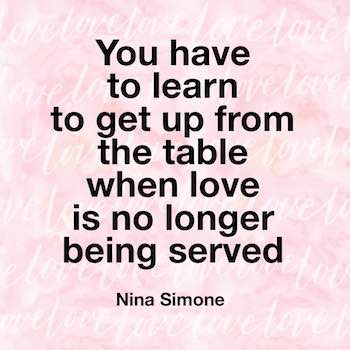
-
If you realize you ARE in one, what next?
Realizing you’re in a toxic relationship is easy if someone shows you the reality of a toxic relationship and also has a solution in hand
Most people in toxic relationships know on some level that the relationship is sucking their soul out and making them miserable, but they suppress those thoughts because they don’t see any alternative to their situation – they’ve been trying everything they can think of to improve the relationship and the thought of breaking off the relationship feels too painful to even consider.
When you can see that the “drug” is not really making you high anymore, but rather removing the horrible withdrawal effects, you can see the reality of what’s really at play… and you can recognize that detoxing yourself is the only route to true salvation.
-
Can a toxic relationship ever be saved? If so, how?
It is possible to fix a toxic relationship. That is to say, it’s possible to shift a toxic relationship dynamic into a healthy, happy, functional relationship dynamic.
First, at least one partner needs to see the toxic relationship dynamic for what it is and why it’s playing out. They need to fully realize it’s an impossible dynamic to resolve into happiness, and once they do, they won’t be able to bring themselves to continue unconsciously participating in it. Once you realize something is insane and impossible, you can’t un-realize it.
They must realize that they only have control over themselves (their emotions, actions, and reactions) and that their partner is the only person responsible for their emotions, actions, and reactions.
What I’m talking about here isn’t some approach to relationships. What I’m talking about is acknowledging an absolute reality. Nobody can be ultimately responsible for another person’s emotions. There is no other option.
Once one of the partners fully sees the dynamic for what it is, it’s time to communicate with their partner about the reality at play without blaming or accusing the partner of being responsible for the toxic dynamic. The conversation needs to be one of recognition, not of blame or accusation (which will only lead to the partner defending themselves and/or counteracting… and more importantly, would be just another conversation within an overall toxic dynamic).
Toxic relationships can only take place with two people unconsciously playing into a relationship without emotional responsibility.
With this in mind, you will take responsibility for your emotions and they will have to do the same if they want the relationship to continue. Taking full responsibility for your emotions, actions, and reactions is not to appease your partner – it is to be in alignment with reality and, thus, be able to create a foundation for a functional relationship (if not with this partner, then with any partner you might have in the future).
A toxic relationship won’t heal overnight, but if he’s able to see the dynamic at play and he’s willing to work towards a relationship where both you and he take full emotional responsibility, then over time the relationship can improve dramatically and flush out the toxic quality. This can happen quite fast in most cases once the two people finally see the insanity (and resulting toxicity) of a relationship where one or both partners don’t take full emotional responsibility for themselves.
-
What else should women know about toxic relationships?
Some people, even after you expose the insanity of a toxic relationship, will still refuse to take any responsibility for their emotions. It might be because they think that they will be giving up power in the relationship. It might be because they’re afraid it will make them vulnerable in a way they’re not comfortable with. It might be that they haven’t fully and deeply realized the insanity of any alternative to taking complete emotional responsibility for themselves and just need time to process and realize this in their own time and space.
Regardless, once you see the insanity of it and the fact that there’s no way to participate in a toxic relationship and have it lead to a successful outcome, you won’t be able to participate anymore and further, you’ll see how if they can’t also see the insanity for what it is, then any further interactions with them will lead to a dead end.
Some people need time and patience to adapt themselves to a new way of being. However, if someone refuses to take emotional responsibility after it’s been exposed to them and has no desire to modify their behaviors or actions, then that is when it is time to either leave or limit your exposure to that person as much as possible.
Also, while it can be easy for a partner to see the other partner as “the problem”, truly repairing a toxic relationship requires that both partners do the work.
As I said before, an essential part of healing a toxic relationship dynamic is that you must take full emotional responsibility for your emotions, actions and reactions. Even when you believe you’re “right” and the other person is “wrong,” your emotions are still ultimately only under your control and therefore, can only be your responsibility.
This means you need to work on resolving your own emotional triggers and find a way to resolve the emotions that come up yourself.
It also means not doing things to bait them or incite them (since doing so only comes from a place where you have blamed them for wronging you and thus feel retaliation is justified… but on a deeper level, the real culprit is you blame them for your emotions).
Finally, it also means a shift in perspective, where you recognize that you are in control of the choices in your life and that you are not a victim. Yes, you might be in a situation that you don’t ultimately want, but even still, recognizing you have a choice is a required step in making a change in your life. In order to open the door for change to happen, you cannot see yourself as a victim. You must see yourself as a person who is choosing to participate in a relationship dynamic and thus can make new choices from here.
If you think you might be in a toxic relationship (or at least, you think there might be a chance you’re in a toxic dynamic at times in your relationship), then the best thing you can do right now is to take our toxic relationship quiz to see if your relationship is at all toxic. The quiz is extremely accurate and will tell you exactly what you can do to fix it right now.
Hope it helps,
eric charles

